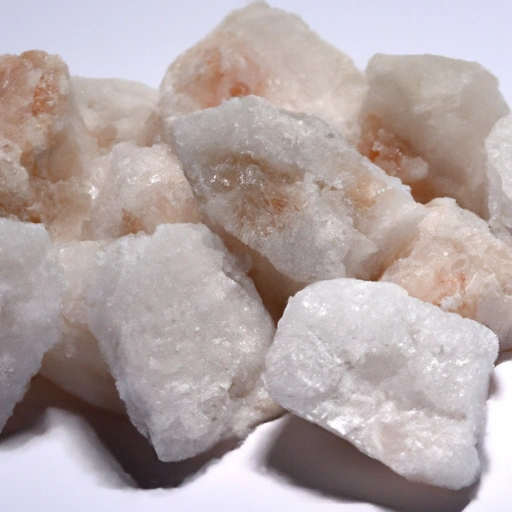Rock Salt
Description

Rock salt, also known as halite, is a mineral form of sodium chloride (NaCl). It is typically extracted from ancient seabeds and salt mines, where it has crystallized over millions of years. Rock salt is chunkier and less refined than common table salt, with larger, coarser grains that are often grayish in color, owing to mineral impurities. The size and shape of rock salt granules can vary, with some being as large as pebbles or as small as fine gravel.
Common uses
Rock salt is commonly used for de-icing roads and walkways, water softening, and as a seasoning for food, particularly in South Asian cuisine. It is often chosen over other forms of salt for its distinct texture and flavor.
Nutritional value
Calories
Rock salt contains approximately 0 calories per gram, as it is not metabolized by the body.
Protein
Rock salt contains no protein.
Fat
Rock salt does not contain any fats.
Carbohydrates
Rock salt is carb-free.
Vitamins
There are no vitamins present in rock salt.
Minerals
Rock salt is primarily composed of sodium chloride but may also include trace amounts of minerals like calcium, magnesium, potassium, and sulfates, depending on its source.
Health benefits
While rock salt does not offer significant health benefits on its own, maintaining an adequate level of sodium in the diet is essential for fluid balance, nerve transmission, and muscle function. However, it should be consumed in moderation.
Potential risks
Excessive consumption of rock salt can lead to high blood pressure, heart disease, and stroke. People with sodium-sensitive conditions should be particularly cautious and adhere to recommended daily intakes.
Common recipes
Rock salt is often used in recipes requiring a burst of flavor and texture, such as salt-baked fish, pretzels, and artisanal breads.
Cooking methods
It can be used in grilling, baking, and as a bed for roasting to impart a subtle saltiness to dishes.
Pairing with other ingredients
Rock salt pairs well with hearty meats, root vegetables, and complements the sweetness in caramel and chocolate desserts.
Summary
Rock salt is a versatile, unrefined salt with a distinct texture. It's used across various cuisines and for other purposes like de-icing and water treatment. While it contains essential minerals like sodium, it should be used sparingly to avoid health risks associated with high sodium intake. Rock salt enhances the flavor and texture of several recipes and remains a staple in kitchens worldwide.